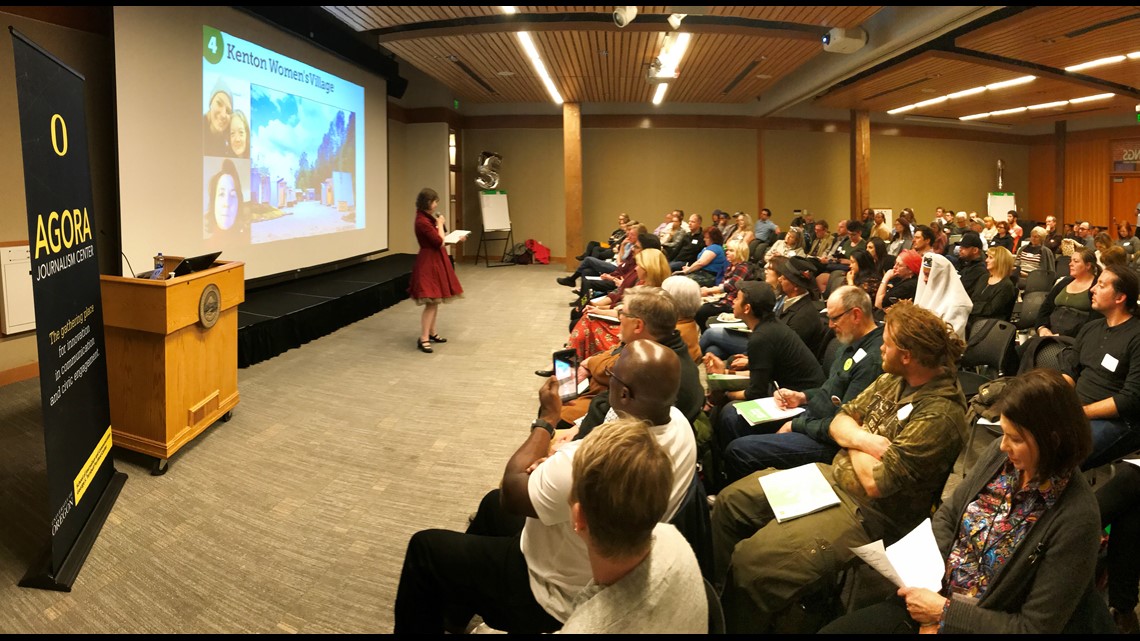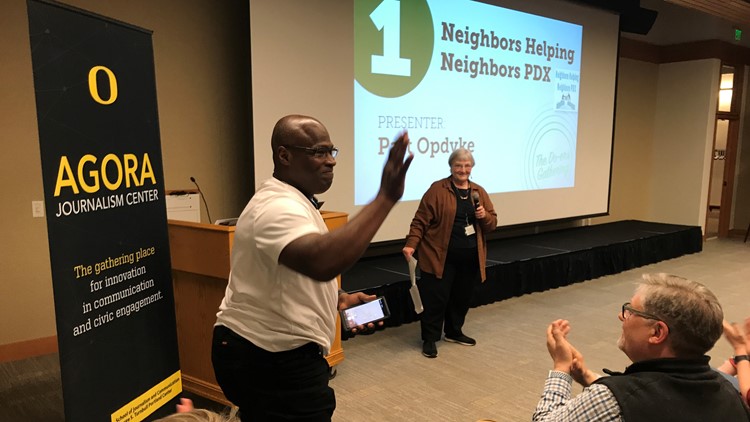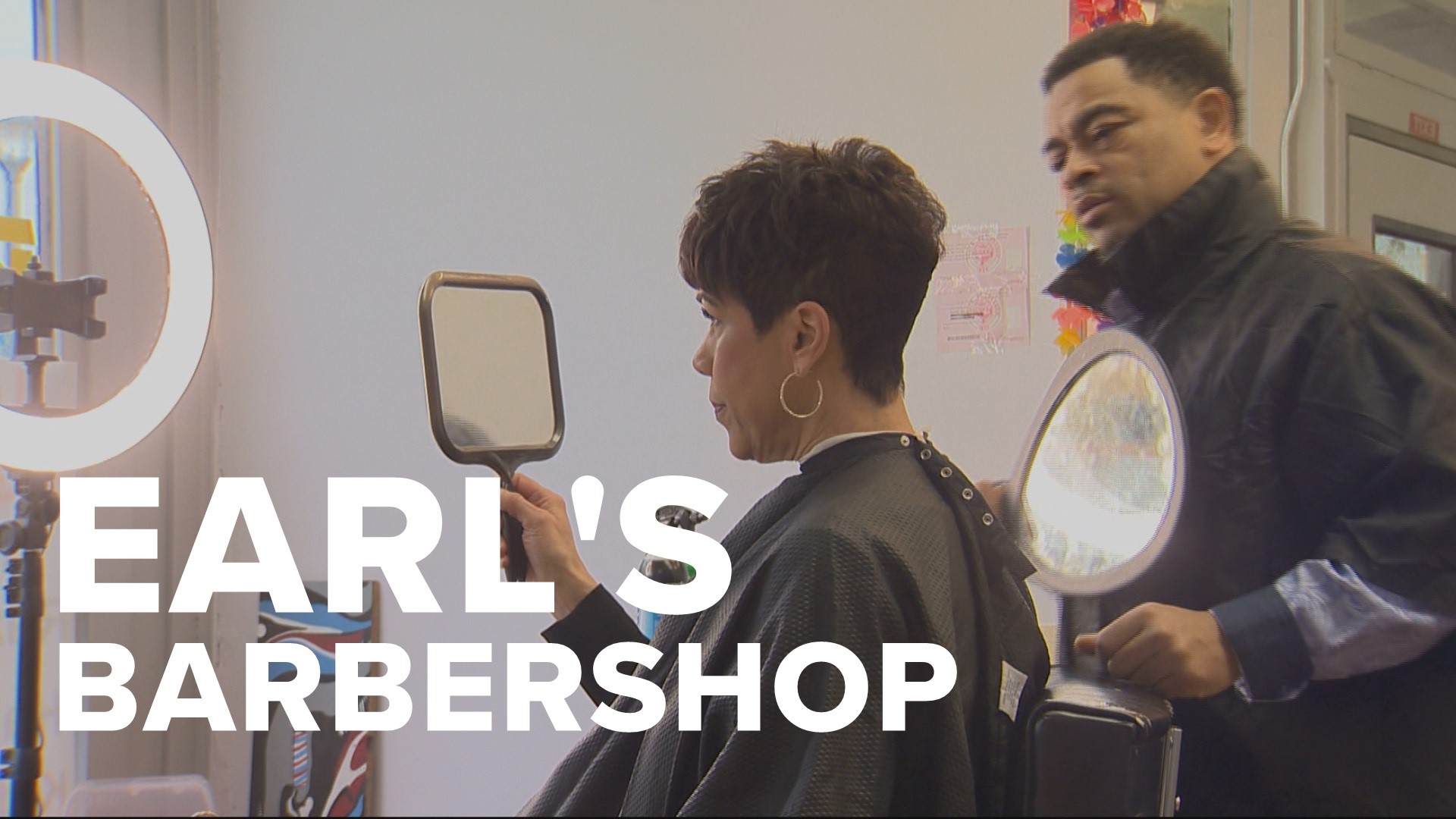PORTLAND, Ore. —
There’s more to the housing crisis than meets the eye, especially for the work being done to drive solutions.
Portland’s current housing crisis is a multifaceted, complex issue that affects thousands of neighbors every day. For many Portlanders, housed and unhoused, the crisis only seems to get worse each year.
But Portland City Commissioner Chloe Eudaly, the Office of Community & Civic Life, the University of Oregon’s Agora Journalism Center, and Portland’s neighborhood coalitions wanted to lift up the story that doesn’t get told.
Their collaborative efforts spawned an idea for an event that aimed to bring people together rather than divide them, which has, unfortunately, became a characteristic of most housing forums in our city. Think Shark Tank meets solutions-oriented gathering of various organizations across the city addressing our solutions crisis one idea at a time. And the event, held on April 24, was ultimately a success.
To open the evening, scene-setters such as Commissioner Eudaly and Marc Jolin from the Joint Office of Homeless Services presented the big picture view of where we are and how we got here.


When the Do-ers Gathering video presented people who face the repercussions of our current state of housing as well as those behind the grassroots projects and organizations actively trying to address these consequences. Oftentimes, there was no distinction between these two groups.
The goal of the Do-ers Gathering was to bring together organizations and individuals who contribute to community-driven solutions addressing Portland’s housing crisis. The evening was to inspire community members to join the efforts of the “Do-ers”.
These Do-ers shared stories of their work and how it’s impacted fellow neighbors affected by the housing crisis. These “pitches” were a call-out to attendees, asking them to help their respective organization or project in a particular way.
Patt Opdyke, for example, from Neighbors Helping Neighbors asked for volunteers to help load trash bags at campsites, make sandwiches for distribution on trash collection days, and donate supplies such as sandwich ingredients or clothing for the folks they encounter along the way. Executive Director of Street Roots, Kaia Sands, asked for letters and testimonies to be sent to Mayor Wheeler that support Street Roots new Portland Street Response—a plan for future crisis and nuisance intervention in public spaces.
Each pitch was unique in its own right with asks from ideas and resources to time and monetary donations. And after the pitches, community members met in breakout sessions to individually meet the Do-ers and learn about how their offers might be of help. The networking opportunity was a natural outcome from evening’s gathering.
The evening was a celebration of all the impactful work addressing the housing crisis in Portland. It was strangers helping strangers and neighbors helping neighbors, housed and unhoused. And perhaps most notably, it connected Portlanders transforming the housing conversation.
The following video introduces some of the scene setters, Portlanders impacted by the housing crisis, and Do-ers who were not featured at the gathering, but who could use help from the community all the same.
In the end, the City of Portland offered two $2,000 mini-grants to help support a couple of the Do-ers who made pitches which were selected by the community members that attended the event. Congratulations to the two projects that were awarded for the mini-grants:
Cascadia Clusters is a non-profit that trains houseless individuals to build tiny home villages for the houseless.
Right 2 Survive's Resting Safe brings together community leaders and activist-scholars to systematically evaluate and mitigate environmental hazards at rest areas.
Portions of this project were made possible by the generous support of the Jackson Foundation.



